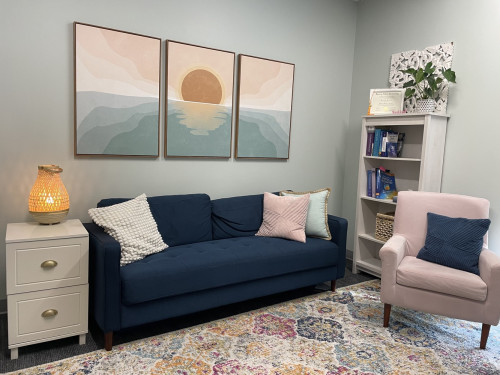

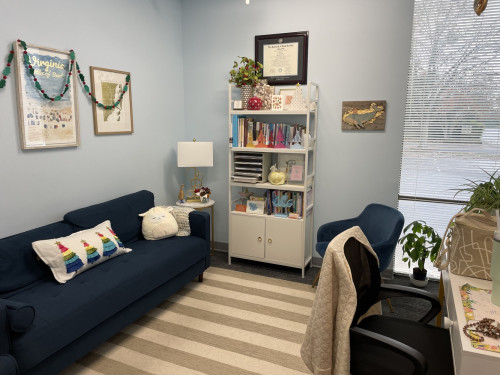



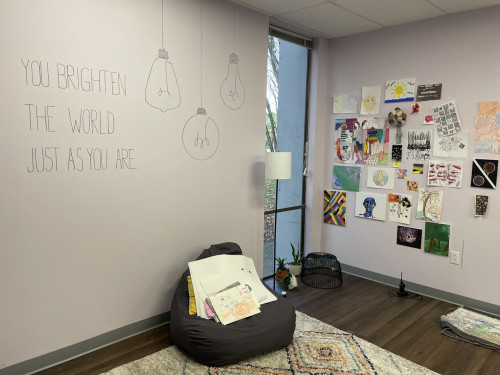
Prosperity Eating Disorders and Wellness Norfolk
Verified Center
This provider's information has been quality-checked by Recovery.com's Research Team for accuracy and completeness, including center verification through appropriate third-party organizations.
Treatment Focus
You can get treatment for eating disorders at this center, helping you navigate symptoms, build coping tools, and restore your physical health under expert care.
Primary Level of Care
Outpatient treatment offers flexible therapeutic and medical care without the need to stay overnight in a hospital or inpatient facility. Some centers off intensive outpatient program (IOP), which falls between inpatient care and traditional outpatient service.
Treatment Focus
You can get treatment for eating disorders at this center, helping you navigate symptoms, build coping tools, and restore your physical health under expert care.
Primary Level of Care
Outpatient treatment offers flexible therapeutic and medical care without the need to stay overnight in a hospital or inpatient facility. Some centers off intensive outpatient program (IOP), which falls between inpatient care and traditional outpatient service.
Provider's Policy
We are in network with most major insurances and will also try to work with your insurance if we need to be in-network. We strive to not have to turn anyone away due to financial concerns.
Prosperity Eating Disorders and Wellness Norfolk
Prosperity Eating Disorders and Wellness Norfolk
About Prosperity Eating Disorders and Wellness Norfolk
Prosperity Eating Disorders and Wellness Center provides individualized treatment that is patient-led, family-included, and facilitated by highly experienced clinicians. They treat anorexia nervosa, bulimia nervosa, binge eating disorder (BED), unspecified eating disorders (ED NOS), and avoidant restrictive food intake disorder (ARFID). They also treat co-occurring anxiety disorders, mood disorders, trauma and post-traumatic stress disorder (PTSD), self-harm, and substance use disorders. Programs include partial hospitalization (PHP) and intensive outpatient (IOP) options for adults and adolescents ages 10+. The IOP is offered during the day or evening. Groups are composed by age and developmental level rather than diagnosis.
Find Freedom through Evidence-Based & Holistic Therapies
Prosperity helps clients understand how their eating disorder developed, how it has been maintained, and how to live a full life without it. Their approach integrates Health at Every Size (HAES), All Foods Fit, and compassionate, personalized treatment. They draw on evidence-based therapies such as cognitive behavioral therapy (CBT), dialectical behavior therapy (DBT), acceptance and commitment therapy (ACT), and radically open dialectical behavior therapy (RO DBT). Programming includes individual therapy, nutrition counseling, psychiatry, family meetings, and family therapy. Traditional modalities are complemented by holistic approaches like art therapy, music therapy, and yoga.
Develop Positive, Sustainable Eating Habits
In a nurturing and friendly manner, Prosperity helps clients discover that all foods can fit into a nutritionally balanced lifestyle. They work alongside clients to create a customized meal plan that promotes self-efficacy and a positive relationship with food. They use a plate-based system with attention to portioning and nutrient balance, but they can also use exchange-based plans if that is best for the client. During meals, staff will appropriately challenge clients’ disordered thoughts, table behaviors, food fears, and food rules and rituals. Clients are exposed to portioning practice, grocery outings, restaurant outings, cooking groups, challenge snacks, and more. Each meal includes processing time for clients to discuss their challenges and skills to help them move toward recovery. As clients become more in tune with hunger and fullness cues, they transition to an intuitive eating plan that provides true food freedom.
Heal in a Welcoming Space
Prosperity’s outpatient facility is warm and inviting. With well-decorated spaces featuring cozy couches and real dining tables, the center provides a comfortable, relaxed environment that encourages healing and connection. Thoughtfully designed to be wheelchair and larger body accessible, Prosperity ensures all clients can access care in a welcoming and supportive setting. Discounted rates at a nearby motel are offered for families in PHP.

Highlights from the Center
Highlights
These highlights are provided by and paid for by the center.
Boutique
Eating Disorders Program
Center Overview
Treatment Focus
You can get treatment for eating disorders at this center, helping you navigate symptoms, build coping tools, and restore your physical health under expert care.
Joint Commission Accredited
The Joint Commission accreditation is a voluntary, objective process that evaluates and accredits healthcare organizations (like treatment centers) based on performance standards designed to improve quality and safety for patients. To be accredited means the treatment center has been found to meet the Commission's standards for quality and safety in patient care.
Insurance Accepted
Cash Pay Rates
Estimated Cash Pay Rate
Center pricing can vary based on program and length of stay. Contact the center for more information. Recovery.com strives for price transparency so you can make an informed decision.
Meet Your Care Team

Amanda Bakko
Registered Dietitian Nutritionist
MS, RDN

Haley Havighurst
Registered Dietitian Nutritionist
RDN

Rachel Howell
Registered Dietitian Nutritionist
RDN
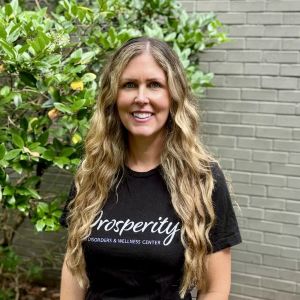
Stacey Guerrero
Psychiatric Nurse and Medical Director
PMHNP

Joan Pleasants
Yoga Instructor
MS, RYT-500

Mary Dye
Nutrition Director
MPH, RDN, CEDS-S

Nyanza Worthington
Nutrition Technician
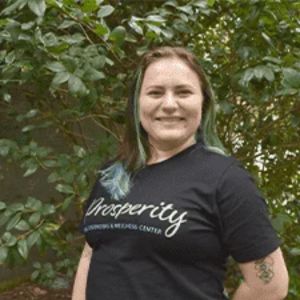
Savannah Dyer
Chef – Dietary Manager
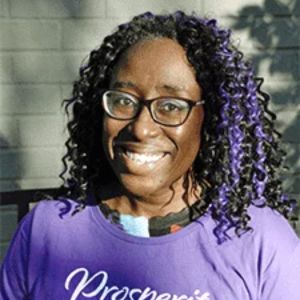
Shauna Sturge
Therapist
BS, MSW

Sherry Lillico
Nutrition Technician Manager



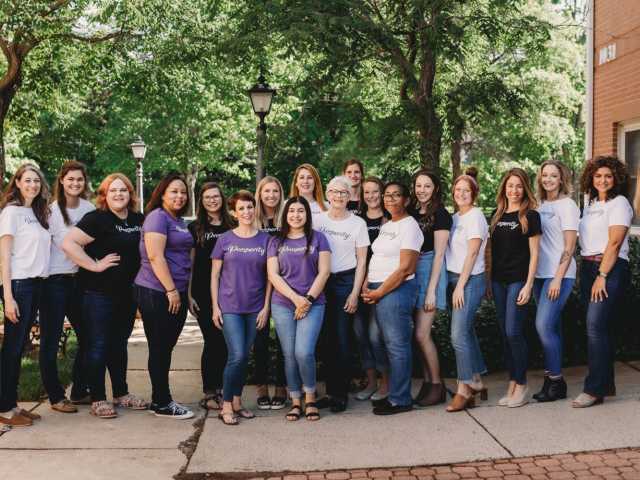
Levels of Care






Your Care Options
Specializations
Anxiety
Anxiety is a common mental health condition that can include excessive worry, panic attacks, physical tension, and increased blood pressure.
Obsessive Compulsive Disorder (OCD)
OCD is characterized by intrusive and distressing thoughts that drive repetitive behaviors. This pattern disrupts daily life and relationships.
Adolescents
Teens receive the treatment they need for mental health disorders and addiction, with the added support of educational and vocational services.
Eating Disorders
An eating disorder is a long-term pattern of unhealthy behavior relating to food. Most people with eating disorders have a distorted self-image.
Older Adults
Addiction and mental health treatment caters to adults 55+ and the age-specific challenges that can come with recovery, wellness, and overall happiness.
Professionals
Busy, high-ranking professionals get the personalized treatment they need with greater accommodations for work, privacy, and outside communication.
Who We Treat
Veterans
Patients who completed active military duty receive specialized treatment focused on trauma, grief, loss, and finding a new work-life balance.
Men and Women
Men and women attend treatment for addiction in a co-ed setting, going to therapy groups together to share experiences, struggles, and successes.
Young Adults
Emerging adults ages 18-25 receive treatment catered to the unique challenges of early adulthood, like college, risky behaviors, and vocational struggles.
Adolescents
Teens receive the treatment they need for mental health disorders and addiction, with the added support of educational and vocational services.
Children
Treatment for children incorporates the psychiatric care they need and education, often led by on-site teachers to keep children on track with school.
Midlife Adults
For adults ages 40+, treatment shifts to focus on the unique challenges, blocks, and risk factors of their age group, and unites peers in a similar community.
Older Adults
Addiction and mental health treatment caters to adults 55+ and the age-specific challenges that can come with recovery, wellness, and overall happiness.
Approaches
Holistic
A non-medicinal, wellness-focused approach that aims to align the mind, body, and spirit for deep and lasting healing.
Evidence-Based
A combination of scientifically rooted therapies and treatments make up evidence-based care, defined by their measured and proven results.
Family Involvement
Providers involve family in the treatment of their loved one through family therapy, visits, or both–because addiction is a family disease.
Individual Treatment
Individual care meets the needs of each patient, using personalized treatment to provide them the most relevant care and greatest chance of success.
Therapies
1-on-1 Counseling
Patient and therapist meet 1-on-1 to work through difficult emotions and behavioral challenges in a personal, private setting.
Family Therapy
Family therapy addresses group dynamics within a family system, with a focus on improving communication and interrupting unhealthy relationship patterns.
Acceptance and Commitment Therapy (ACT)
This cognitive behavioral therapy teaches patients to accept challenging feelings and make the appropriate changes to reach personal goals.
Psychoeducation
This method combines treatment with education, teaching patients about different paths toward recovery. This empowers them to make more effective decisions.
Art Therapy
Visual art invites patients to examine the emotions within their work, focusing on the process of creativity and its gentle therapeutic power.
Meditation & Mindfulness
A practiced state of mind that brings patients to the present. It allows them to become fully aware of themselves, their feelings, and the present moment.
Conditions We Treat
Anxiety
Anxiety is a common mental health condition that can include excessive worry, panic attacks, physical tension, and increased blood pressure.
Depression
Symptoms of depression may include fatigue, a sense of numbness, and loss of interest in activities. This condition can range from mild to severe.
Obsessive Compulsive Disorder (OCD)
OCD is characterized by intrusive and distressing thoughts that drive repetitive behaviors. This pattern disrupts daily life and relationships.
Trauma
Some traumatic events are so disturbing that they cause long-term mental health problems. Those ongoing issues can also be referred to as "trauma."
Eating Disorders
An eating disorder is a long-term pattern of unhealthy behavior relating to food. Most people with eating disorders have a distorted self-image.
Self-Harm
The act of intentionally harming oneself, also called self-injury, is associated with mental health issues like depression.
Substances We Treat
Co-Occurring Disorders
A person with multiple mental health diagnoses, such as addiction and depression, has co-occurring disorders also called dual diagnosis.
Languages
Aftercare
Care Designed for Your Needs
Amenities
Special Considerations
Activities
Yoga
Yoga is both a physical and spiritual practice. It includes a flow of movement, breathing techniques, and meditation.






